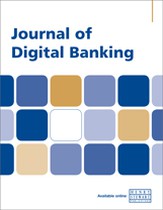Data science in economy and finance: A central bank perspective
Abstract
Data science is fundamentally different from traditional data analysis, as it typically applies to large, complex and/or unstructured information sets. The role of data scientists, hence, lies at the intersection of three areas. The first is IT: central banks are increasingly aware that a modern technological architecture is crucial to reliably and securely deal with data. The second relates to the use of mathematical and statistical techniques to deal with the raw data at hand. This paper analyses how many different approaches can help support central banks’ operations, especially in the monetary policy and micro- and macroprudential areas, as well tasks related to the functioning of the payment system, financial inclusion, consumer protection and anti-money laundering. It presents how, in addition, the use of the new techniques could transform the whole production chain of official statistics, making it potentially more efficient, resilient and user-friendly. The third key area is to ensure close cooperation between data specialists and subject-matter experts involved in data science projects. Analysing statistics calls for an awareness of the way they have been compiled as well as of the complex factors that drive them — which are essential elements for transforming data into knowledge and taking informed policy decisions.
The full article is available to subscribers to the journal.
Author's Biography
Douglas Araujo is an economist at the Monetary and Economic Department (MED) of the Bank for International Settlements (BIS). Douglas joined the BIS in September 2018 and has been an economist there since May 2022. Previously, Douglas was in the Secretariat of the Basel Committee on Banking Supervision. Before that, he worked at the Central Bank of Brazil between 2011 and 2018. From 2015 to 2018, he also supported a number of countries in enhancing their macro-prudential frameworks as a member of International Monetary Fund missions. Douglas was a fellow at the BIS’s Financial Stability Institute in 2014 and worked in the private sector in Brazilian financial markets until 2011. His current research and open source software are at the intersection of machine learning and economics.
Giuseppe Bruno is the Head of Division in the Economics and Statistics Department at the Bank of Italy. In his career, he has worked with experts from the Division of Research and Statistics at the Board of Governors of the Federal Reserve System. In 1993, he spent an academic year at the University of Pennsylvania (Philadelphia) for developing algorithms for optimal control of econometric models. In 2000, after a short period at the Statistical Division of the Organisation for Economic Co-operation and Development (OECD), he was appointed Head of the Economic Research Department’s IT unit. In 2016, he was given the responsibility of coordinating a multidisciplinary team on Big Data that works across departments with different skills (economists, statisticians, computer scientists). One of the team’s goals was to build a hardware/software infrastructure capable of dealing with different kinds of Big Data related to macroeconomic and microeconomic issues. Over his career, he has published over 30 papers in different economic and computational economics journals.
Juri Marcucci is a senior economist at the Bank of Italy’s Economics, Statistics, and Research Department. He is involved in applying Big Data, artificial intelligence (AI) and machine learning to macroeconomic forecasting. He holds a PhD in economics from the University of California San Diego and is a lecturer at the Sapienza University of Rome. He is the organiser of the Italian Summer School of Econometrics for the Italian Econometric Association and co-organiser of the international webinar on Applied Machine Learning, Economics, and Data Science. Juri has been a guest editor for both the International Journal of Forecasting and Econometrics, as well as for a special issue of the Journal of Econometrics on machine learning for economic policy. His research interests are Big Data, text mining, forecasting and applied econometrics. His work has appeared in the Journal of Econometrics, International Journal of Forecasting, Studies in Nonlinear Dynamics & Econometrics and other peer-reviewed international journals.
Rafael Schmidt is currently employed at the BIS MED, where he oversees the Bank’s statistical data processing, analysis and dissemination systems. Prior to joining the MED, Rafael managed the Risk Methodology team in the BIS Risk Management Department. As an academic, Rafael served as an assistant professor at the University of Cologne and the London School of Economics and Political Science. His private sector experience includes notable engagements with DaimlerChrysler and Credit Suisse. Rafael possesses degrees in mathematics, economics, statistics and actuarial science and has earned a PhD as well as a habilitation in financial statistics and econometrics.
Bruno Tissot is the Head of Statistics and Research Support at the BIS and Head of the Secretariat of the Irving Fisher Committee on Central Bank Statistics. He is also the BIS Representative in the Statistical Data and Metadata Exchange Sponsors’ Committee and chairs the international Working Group on Securities Databases. He has been at the BIS since 2001, first as a senior economist and secretary to the Markets Committee of Central Banks in the MED and then as the Adviser to the General Manager and Secretary to the BIS Executive Committee. Between 1994 and 2001, he worked for the French Ministry of Finance, having graduated from École Polytechnique (Paris) and the French Statistical Office, the Institut national de la statistique et des études économiques (INSEE).
